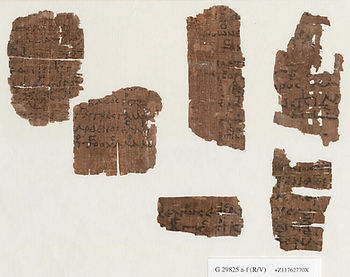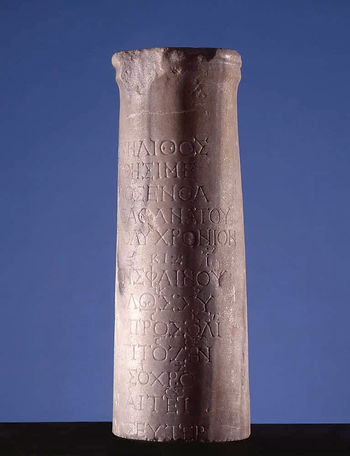
In their groundbreaking album “Teleion: Fragments of Ancient Greek Music,” the dynamic duo Lopez & Arevalos embark on a mesmerizing journey to unearth the sounds of ancient Greece. Inspired by surviving fragments of melodies and texts, they breathe new life into age-old compositions, bridging the gap between past and present with their innovative interpretations.
Music has always been a profound expression of human emotion and experience, transcending time and space to resonate with our deepest selves. Throughout history, music has served as a vessel for storytelling, worship, and reflection, offering a glimpse into the cultural tapestry of humanity.
The album, a labor of love and dedication, pays homage to the rich musical heritage of ancient Greece, inviting listeners to immerse themselves in a world of myth, mystery, and timeless beauty. Through intricate piano compositions and ethereal vocals, Lopez & Arevalos evoke the spirit of a bygone era, transporting listeners to a realm where gods and mortals mingle in harmony.
As Dimitris Soukoulis eloquently states, “Sing, therefore, beloved Muse, until the rhythm of the music makes our legs dance because time, sooner or later, will ask for its tribute.” With “Teleion” Lopez & Arevalos offer a tribute to the enduring power of music, reminding us of our shared humanity and the timeless truths that resonate across the ages.
Collaborating with the esteemed poet and artist, Dimitris Soukoulis, the Lopez & Arevalos meticulously transcribe and translate ancient Greek texts into English and Italian, ensuring that the essence of these ancient hymns and celebratory odes is preserved for modern audiences.
Here’s an introduction to the lyrics written by Dimitris Soukoulis:
The words of the celebratory hymns, the deafening vibrations of the anguish of a relentless fate that pours down on mortals, the light and sudden fluttering of the winged Nemesis, ally of those who have suffered wrongs and of those who claim justice, rise more easily if accompanied with the music of the flute and the kithara, if carried away by the smoke of the incense, by the burnt fat of the offerings, by the hot wind that dries the earth and opens the thirsty mouths to tell deeds of common mortals to be avoided, heroes’ legends consolidated in the collective memory, prayers directed to the gods to be recited with devotion and perseverance. After a long silence of about 2500 years, the golden-haired Phoebus again sets out to prepare his chariot, the Moon wakes up his white bullocks as from a deep sleep that has lasted centuries and the time begins to flow again, making the seeds sprout up, the plants grow, harvest fruits; matricidal Orestes wakes up filthy from his nightmare with bloody hands and the suicidal Aiax, the Telamon’s son, takes again the way back to the land of shadows; the Delphic god regains the sacred tripod and the guardian snake retreats into the bowels of the earth and reveals to us, modern people, after a long time of pause, a supreme and universal truth: the caducity of the human being, his fragility, the anguished and continuous research for elusive happiness, the agonizing grabbing on to a superior force, to a benevolent ally, to a reassuring hope as the sun that warms and gives life, relieving us from the daily fatigue and pain that human existence suffers. What has been preserved, what has been handed down, marked by the indifferent time, by the sweaty hands of the transcribers, it reconnects us with the past, broadening our vision for the world around us, our reflection about the human being, leading us to introspective questions regarding the limits of our nature and its destiny, as precarious and consumable beings as, in a melancholic tone, stated in the funerary inscription of Seikilos. Sing, therefore, beloved Muse, until the rhythm of the music makes our legs dance because time, sooner or later, will ask for its tribute.
However, our existence, destined to decay, resembles the words that would be completely lost if a copyist, a philologist or an archaeologist had not carefully examined these records. The transcription and subsequently the translation was mainly based on the book Documents of Ancient Greek Music by Egert Pöhlmann & Martin L. West, Clarendon Press, Oxford, 2001 and different sources were compared, as well. Certainly, this is not a philological work but our intention was to respect essential rules of philology and make the reader participate in the final form of the epigraphs or papyri that present gaps due to the passage of time or some intentional or unwanted human inattention. For this reason and for respect for the cultural value of them, has been mantained the original form, leaving on the text the marks of philologists, especially for them that are seriously and irremediably damaged, which implies and a missing and not a clear and comprehensive translation and interpretation of the text: as example square brackets ʺ[ ]ʺ or ʺ]ʺ or ʺ[ʺ in a papyrus text, or in an inscription, enclose places where words have been lost through physical damage in the middle or in the end or in the beginning of a line; ʺ< >ʺ angular brackets enclose words or letters that an editor has added; ʺ( )ʺ round brackets in the translated texts indicate a word that is implied and has been given from the translator.
Therefore, in this journey Matteo Ramon Arevalos revives the sounds, Camilla Lopez gives the voice and Dimitris Soukoulis, of whom this dreamlike thought, transliterates and translates the ancient texts into Italian and English.
Lyrics:
1 – EURIPIDES, Orestes 338-44 (Third-second century BC)
κατολοφύρομαι, κατολοφύρομαιματέρος αἷμα σᾶς, ὅ σ’ ἀναβακχεύει,ὁ μέγας ὄλβος οὐ μόνιμος ἐν βροτοῖς,ἀνὰ δὲ λαῖφος ὥς τις ἀκάτου θοᾶς τινάξας δαίμωνκατέκλυσεν δεινῶν πόνων ὡς πόντουλάβροις ὀλεθρίοισιν ἐν κύμασιν
[ITA]
Gemo; gemo il sangue di tua madre
che ti rende folle; la felicità assoluta
non è durevole ai mortali;
è come la vela di una nave veloce
che un Dio ha scosso e affondato
con dolori terribili tra le onde
avide e voraci del mare.
[ENG]
I grieve; I grieve your mother’s blood,
which makes you insane; the great happiness
is not long-lasting to the mortals;
it is as the sail of a fast ship which
got shattered and sunk by a God with terrible pains
between the greedy and voracious
waves of the sea.
2 – FIRST DELPHIC HYMN TO APOLLO (128/7 BC)
Paean of Athenaios
[Παιὰν καὶ ὑπόρχημα] εἰς τὸν θεὸν ὃ ἐ[πόησεν Ἀθ]ήναιος.
[Κέκλυθ’ Ἑλικ]ω̣ῶνα βαθύδενδρον αἳ λά[χετε, Διὸ]ς
ἐ[ρι]βρόμουου θύγατρες εὐώλ[ενοι], μόλετε συνόμ-
αιμον ἵνα Φοιοῖβον ὠιδαε[ῖ]σι μέλψητε χρυσεοκόμαν,
ὃς ἀνὰ δικόρυνβα Παρνασσίδος ταᾶσδε πετέρας ἕδραν’ ἅμ’
[ἀ]γακλυταιεῖς Δεελφίσιιν Κασταλίδος ἐουύδρου
νάματ’ ἐπινίσεται, Δελφὸν ἀνὰ[πρ]ωῶνα μααν-
τειεῖον ἐφέπων πάγον.
[Ἢν] κλυτὰ μεγαλόπολις Ἀθθίς, ἐυχαιεῖ̣σι φερό-
πλοιο ναίουσα Τριτωωνίδος δά[πε]δον ἄθραυστον· ἁγί-
οις δὲ βωμοιοῖσιν Ἅφαιστος αἰείθε⟨ι⟩νέων μῆρα ταού-
ρων· ὁμουοῦ δέ νιν Ἄραψ ἀτμὸς ἐς [Ὄ]λ[υ]μπον ἀνα-
κίδν[α]ται· λιγὺ δὲ λωτοὸς βρέμων ἀειόλοιοις
μ̣[έ]λεσιν ὠιδαὰν κρέκει· χρυσέα δ’ ἁδύθρου̣[ς]
[κί]θαρις ὕμνοισιν ἀναμέλπεται.
Ὁ δὲ [τεχνι]τωῶν πρόπας ἑσμὸς Ἀθθίδα λαχὼ̣[ν]
[ἀγλαΐ]ζει κλυτὸν παῖδα μεγάλου [Διός·]
[σοὶ γὰρ ἔπο]ρ’ ἀκρονιφῆ τόνδε πάγον, ἀάμ[βροτ’ ἀ-]
[ψευδέ’ο]ὗ πᾶσι θνατοιοῖς προφαίνει[εις λόγια],
[τρ]ίποδα μαντειεῖον ὡς εἱεῖ[λες, ὃν μέγας ἐφρ]ουού-
ρειει δράκων, ὅτε τέ[κος Γαᾶς ἀπέστ]ηησας, αἰ-
όλον ἑλικτὰν [φυάν, ἔσθ’ ὁ θὴρ πυκν]ὰ̣ συυ-
ρίγμαθ’ ἱιεὶς, ἀθώπε[υτ’ ἀπέπνευσ’ ὁμῶς]·
[ὡς] δὲ Γαλαταᾶν Ἄρης [βάρβαρος, τάνδ’ ὃς ἐπὶ γαῖα]ν ἐπέ-
ραασ’ ἀσέπτ[ως, χιόνος ὤλεθ’ ὑγραῖς χοαῖ]ς.
[ITA]
Peane e canto mimico dedicato al dio, composto da Athenaios
Ascoltate dalle candide braccia figlie di Zeus altisonante,
che avete avuto sorte il monte Elicone, fitto di boschi,
venite per celebrare con inni, il vostro consaguineo Febo
dalla chioma aurea, il quale scala queste rocce di Parnaso
dalle due cime su cui ha il trono, accompagnato dalle celeberrime
fanciulle di Delfi e raggiunge le sorgenti della florida Castalia
e sale per la rupe delfica per visitare il suo oracolo.
Vi è Attica nota per la grandezza della sua città, la quale
sotto la protezione della Tritonide, portatrice di armi, occupa
l’inespugnabile territorio; sugli altari consacrati Efesto
brucia cosce di giovani tori; nello stesso tempo
fumo d’incenso arabo sale sull’Olimpo; la lira infuria suoni
che si intrecciano con gli inni in svariate melodie; la cetra d’oro
risuona con gli inni, dolci vibrazioni.
Tutti quanti gli artisti per sorte abitanti di Attica,
ti celebra, famoso figlio del grande Zeus; ti si fu, infatti, concessa
questa roccia sporgente innevata, da cui riveli a tutti i mortali
responsi infallibili;
come conquistasti il tripode delle profezie, custodito dal mostruoso
serpente quando spadroneggiasti la creatura della Terra, rilucente,
avvolta a spirale e dopo il mostro ebbe emesso sibili intensi,
nello stesso tempo aspramente sospirò.
Come appunto l’Ares barbaro dei Galli, il quale invase questa terra
e si annientò nelle correnti di neve sciolta.
[ENG]
Paian and ode for mime dance for the God, which Athenaios composed:
Listen with the white-skinned arms daughters of pretentious Zeus,
from whom received as fortune the mountain Helicon, dense of woods.
Come to celebrate with songs your blood-brother golden-haired Phoibos, who climbs these rocks of double-peaked Parnasso, accompagnied by the well-known Delphian young girls, on which has his throne and reaches the springs of well-watered Kastalis, uphill the Delfian cliff, his oracle.
There is Attica famous for its great city, which under the protection of the weapon-bearing Tritonis inhabits the unconquerable ground; on holy altars, Hephaistos burns the thighs of young bulls; at the same time, Arabian scent streams up to Olympos; the flute rages sounds which wave with the hymns in varying melodies; the golden cithara resonates with hymns sweet vibrations.
The entire swarm of artists by fate inhabitants of Attica
altogether praises great Zeus’ the famous child;
for you has been given this snow-capped cliff
from where you reveal to all mortals unerring responses;
how you conquered the tripod of prophecies, which the giant snake
was guarding, when you removed away the Gaia’s child,
until the glittering, spiral wrapped beast, letting out thick hisses,
roughly expired all the same. Just as the barbarian Ares of the Gauls, which impiously passed over this land,
perished in the streams of melted snow.
3 – MESOMEDES, Hymn to Nemesis (Second century AD)
Νέμεσι πτερόεσσα βίου ῥοπά,
κυανῶπι θεά, θύγατερ Δίκας,
ἃ κοῦφα φρυάγματα θνατῶν,
ἐπέχεις ἀδάμαντι χαλινῷ,
ἔχθουσα δ’ ὕβριν ὀλοὰν βροτῶν,
μέλανα φθόνον ἐκτὸς ἐλαύνεις.
ὑπὸ σὸν τροχὸν ἄστατον ἀστιβῆ
χαροπὰ μερόπων στρέφεται τύχα,
λήθουσα δὲ πὰρ πόδα βαίνεις,
γαυρούμενον αὐχένα κλίνεις.
ὑπὸ πῆχυν ἀεὶ βίοτον μετρεῖς,
νεύεις δ’ ὑπὸ κόλπον ὀφρῦν ἀεὶ
ζυγὸν μετὰ χεῖρα κρατοῦσα.
ἵλαθι μάκαιρα δικασπόλε
Νέμεσι πτερόεσσα βίου ῥοπά.
Νέμεσιν θεὸν ᾄδομεν ἄφθιτον,
Νίκην τανυσίπτερον ὀμβρίμαν
νημερτέα καὶ πάρεδρον Δίκας,
ἃ τὰν μεγαλανορίαν βροτῶν
νεμεσῶσα φέρεις κατὰ Ταρτάρου.
[ITA]
Nemesi alata, che fai pendere la bilancia della vita
dea dagli occhi blu, figlia di Dike,
che con ferree briglie trattieni
la vanitosa superbia dei mortali,
detesti l’oltraggio devastante degli uomini
e l’invidia funesta bandisci lontano.
Con la tua ruota incerta e inviolabile
gira la sorte lieta dei mortali
e li insegui da vicino, invisibile
e li fai chinare la testa superba.
Con l’avambraccio sempre misuri la vita
e con il solo cenno degli occhi dai ordini
tenendo nella mano la bilancia.
Sii benevole, dea beata, giudice
Nemesi alata, che fai pendere la bilancia della vita.
Con inni celebriamo Nemesi, incorruttibile,
Dea Nike dalle lunghe ali, possente,
infallibile, consigliera di Dike,
che dell’umana presunzione indignandoti
la conduci alla distruzione.
[ENG]
Winged Nemesis, who turn the scales of life,
blue-eyed goddess, daughter of Justice,
who with iron bridles hold
the mortals’ vain arrogance
detesting the disastrous outrage of men
and banish away the black envy.
Beneath your unstable and inviolable wheel,
the fate of men is tossed
and unnoticed you follow them closely
and bow their arrogant head.
You measure life with your forearm
and just with the nod of the eyes
you give orders.
Be benevolent, blessed goddess,
winged Nemesis, who turn the scales of life.
Celebrate with hymns Nemesis, incorruptible,
the goddess Victory of unfurled wings, powerful,
infallible, advisor of Justice,
being indignant of human arrogance,
you lead them in destruction.
4 – MESOMEDES, Invocation of the Muse + Invocation of Calliope and Apollo (Second century AD)
Ἄειδε μοῦσά μοι φίλη,μολπῆς δ’ ἐμῆς κατάρχου·αὔρη δὲ σῶν ἀπ’ ἀλσέωνἐμὰς φρένας δονείτω.
Καλλιόπεια σοφά,μουσῶν προκαθαγέτι τερπνῶν,καὶ σοφὲ μυστοδότα,Λατοῦς γόνε, Δήλιε Παιάν,εὐμενεῖς πάρεστέ μοι.
[ITA]
Canta, cara a me, Musa,
e guida il mio canto
che il vento dai tuoi boschi
scuoti (fa vibrare) le nostre menti.
Calliope sapiente
che precedi le graziose Muse,
figlio di Latona, Peana deliaco
esperto, iniziatore ai misteri,
state al mio fianco, benevoli.
[ENG]
Sing, Muse, kind to me,
and guide my song
and make the wind from your woods
resonate our minds.
Wise Calliope,
leader of the gracious Muses
son of Leto, Delian Paean,
skilful initiator into the mysteries,
stay by my side, benevolent.
5 – ANONYMI Bellermann (Third-fourth century AD)
Instrumental
6 – Papyrus of Vienna G29 825 (Third-second century BC)

]θ̣εὰ ἐχθράν υ[
ἀ]νὰ δάπεδο[ν
[χρ]ητάν δ’ ἔροτ[ιν
]ηδηη μιγα̣ [
χ]α̣λιδοφόρον [̣ ̣ ̣ ̣ ̣ ̣]ι̣κα[
οιςχ ταυτ’̣̣ ̣ βάθος ηζε ̣ ̣ [
]μεναι θύ̣γατρες γαλαθ̣η̣[ναί
π̣]αρθένοι ἑλκεσί̣[πεπλοι
]ο̣ι τροχαλὰ κέ[λευθα]
]̣σεν ἀγκάλισμα
]ο̣ι συ με τὰν ἀ̣ρί[σ
Ταν ]πόθω̣ν κορεῖ τις
]̣ ων̣ [ἐς] κόρακας, ὁσοι καί σε
]π̣ολύς πάν[των ψ]ο̣θοί’ Ἀχαιῶν
ο]ὖν̣ με̣λι̣[τίδ]η̣ ̣ ̣ [
ἐνδ]ρομίδος∙ α̣[
αταωιθ̣ι
ἀκ]αμάτας[
]̣νθεν[
]τὰν κόραν[
π]εριχαρειεῖ
ω̣ρος ἳνα
]χεν ὡς ἐφα[
ς̣ ἄγκεσι κ
[ΙΤΑ]
]dea ostile [
s]ul terreno [
[sarebbe] lecito celebr[are
] [
portatore] di vino puro [̣ ̣ ̣ ̣ ̣ ̣]
questo in fondo seduto ̣ ̣ [
]figlie non ancora svezz[ate
v]ergini vestite con lunghi mante[lli
]correndo vel[oce]
]abbracciandolo
]tu con la[
]spazzando via
]̣ [a]i corvi, tutti quanti
] [impurità] da tutti gli Achei
d]unque con mi[ele]
calza]ture alte[
][
senza] tregua[
][
]figlia[
esul]tare
][
][
burrone
[ENG]
]goddess hostile [
o]n the ground[
[should] celeb[rate
] [
cupbearer] of pure wine [̣ ̣ ̣ ̣ ̣ ̣]
in profundity settled down ̣ ̣ [
]milk-sucking daughters[
v]ergins dressed in long cl[oaks
]running [fast]
]embracing it
]you with the[
]sweeping out
]̣ [to] the crows, everyone
] [filth] of all the Acheans
t]herefore with hon[ey]
high] shoes[
][
without] respite[
] [
]daughter[
re]joice
][
][
gorge
7 – Papyrus Zenon 59533 + Papyrus Hibeh 231 (Third century BC)
]κ̣οι τάδ’ ἑτάρων ἱκέτιν αὐ̣[
]ι̣ γονάτων ἔπι κατασ̣κί[ων
]ε̣ων
[ΙΤΑ]
]presso amici supplice[
]sulle ginocchia in ombra[
]
[ENG]
]supplicant to friends[
]be upon shadowed knees[
]
8 – Papyrus of Oslo 1413 (First-second century AD)
]φαιω κτύπος ἀτρ[
]φερον [ἐ]ν̣<δ>ό[μ]υχον ν̣έφ̣ος ἐλθ̣[̣ ̣ ̣ ̣]τ̣ι[ς] βλ]έ[πεται
]φερον [ἐ]ν̣<δ>ό[μ]υχον ν̣έφ̣ος ἐλθ̣[̣ ̣ ̣ ̣]τ̣ι[ς] βλ]έ[πεται
Φθιμένων φαντ[ά]σματ’ [ἔνερ]θ̣ε[ν
Φθιμένων φαντ[ά]σματ’ [ἔνερ]θ̣ε[ν
]μ̣ιον ὑπ[ὸ] τροχὸν Ἰξείω[ν] δ̣[
]ν ἐπὶ ποτα̣μὸν Ταάν̣[τα]λ̣[ο]σ̣ο̣λ̣[̣] ̣[
αἲσχ]ι̣σται φάσγανα κα̣τὰ γῆ̣ς̣ ἔβαλον Φ̣ρ̣ύ̣γιαι
τ̣α [] σύ]μ̣μαχος ἔμολεν∙ θάρσει, τλήμων Δη̣[η]ιδάμεια
]ημων ἀν̣έβη δ’ἐπὶ φέγγος Ἀχιλλεύς.
Καὶ γὰ̣ρ δειλαὶ Τρωι[άδες ἔφυγον φάσγ]ανα γ̣υμνὰ προλιποῦσαι.
Κἀμὲ γλυκερὰ βαίν̣ε̣ι φ̣ωνὴ
]ἦχον δὲ σαφῶς ἐπ̣ιγε[ινώσκ]ω, καὶ πᾶσα
αἰφνιδίω]ς, δεσπότι, κατέδ[υ πάλιν] δ̣ [̣̣ ̣]σ̣τη
φάος ἡλια̣κ[ό]ν σύν ἐμοί [̣ ̣ ̣ ̣ ̣ ̣] τ̣ο̣ ̣ [
Π]ύ̣ρρου̣ πέλας [̣ ̣ ̣ ̣ ̣ ̣ ̣]
]ην ἀόρατον.
Α̣ὐτὸς τυχὸν ἂ̣[ν] κα̣ ]ο̣ιδα
[ITA]
ve]lato clangore[
[dentro una] nuvola [venir] [appare]
[dentro una] nuvola [venir] [appare]
Spettri di morti [dall’Ade]
Spettri di morti [dall’Ade]
]legato al cocchio degli Issioni
]presso il fiume Tan[ta]l[o]
[le spregevoli] donne Frigie per terra gettarono le spade
[l’alleato] venne; fatti coraggio, sciagurata Deidamia
]uscì alla luce Achille.
E i Troiani intimiditi [si misero in fuga] abbandonando le spade sguainate
E mi giunge la voce soave
] [riconosco] chiaramente il suono, padrone, di ogni
d’improvviso], scese [di nuovo]
luce del sole con me
]accanto a Pirro [̣ ̣ ̣ ̣ ̣ ̣ ̣]
] invisibile.
Costui, per caso
[ENG]
cove]red clangour[
[in a] cloud [appears to] [be coming]
[in a] cloud [appears to] [be coming]
Deads’ ghosts [underworld]
Deads’ ghosts [underworld]
]tied to the chariot of the Ixions
]near the Tan[ta]l[us] river
[the despicable] Phrygian women threw their swords on the ground
[the ally] came; cheer up, unfortunate Deidamia
]came out into the light Achilles
And the Trojans intimidated [fled] abandoning their swords unsheathed
And the sweet voice reaches me
] [recognize] the sound clearly, master, of any
suddenly], he came down [again]
sunshine with me
]near Pyrrhus [̣ ̣ ̣ ̣ ̣ ̣ ̣]
]invisible.
This one, by chance
9 – SEIKILOS, Funeral Epitaph (Second century AD)

Ὅσον ζῇς φαίνου·
μηδὲν ὅλως σὺ λυποῦ·
πρὸς ὀλίγον ἐστὶ τὸ ζῆν.
τὸ τέλος ὁ χρόνος ἀπαιτεῖ.
[ITA]
Finché sei vivo, mostrati al mondo,
non affligerti di nulla;
la vita dura poco;
il tempo esige il suo tributo.
[ENG]
As long as you live, show yourself to the world,
you have not to suffer;
life does not last long;
time demands its tribute.
10 – SECOND DELPHIC HYMN TO APOLLO (128/7 BC)
Paean of Limenios
[Πα]ιὰν δὲ καὶ π[ροσό]δ̣ιον εἰς τ[ὸν θεὸν ὃ ἐπό]η̣σε[ν
καὶ προσεκιθάρισε]ν Λιμήνι[ος Θ]ο̣ίνο[υ Ἀθηναῖος.]
Ἴ̣τ’ ἐπὶ τηλέσκοπον ταάνδ̣ε Παρ̣̣[νασί̣]̣αν [φιλόχορον]
δικόρυφον κλειειτύν, ὕμνωων κα[τάρ]χ̣[ετε δ’ ἐμῶν],
Πιερίδες, αἳ νιφοβόλους π̣έτρας ναίεθ’ [Ἑλι]κωνίδ̣[ας·]
μέλπετε δὲ Πύθιον Χ[ρ]υ̣σεοχαίταν, ἕ[κα]τ̣ον, εὐλύραν
Φοῖβον, ὃν ἔτικτε Λα̣τὼ μάκαιρα πα[ρὰ λίμναι] κ̣̣λυτᾶι,
χερσὶ γλαυκα[ᾶ]ς ἐλαίας θιγουοῦσ’ [ὄζον ἐν ἀγωνίαι]ς
ἐριθα[λῆ.]
Παᾶ̣[ς δὲ γ]άθησε πόλος οὐράνιος̣̣ [ἀννέφελος, αἀγλαός·]
[νη]νέμους δ’ ἔσχεν αἰθηὴρ ἀε̣̣[λλωῶν ταχυπε-]
[τ]εῖς [δρ]ό̣μους· λῆξε δὲ βαρύβρομον Νηη̣[ρέως]
ζαμενὲς ὀ]εῖ-δμ’ ἠδὲ μέγας Ὠκεα̣νός, ὃς πέριξ
γ[αᾶν ὑγραεῖς ἀγ]κά-λαις ἀαμπέχει.
Τότε λιπὼγ Κυυνθίαν ναᾶσον ἐπ̣[έβα Θεὸ]ς πρω[τό]-κα⟨α⟩ρ-
πογ κλυτὰν Ἀτ[θ]ίδ’ ἐπὶ γ`α´αλ[όφωι πρωῶνι] Τρι-
τωωνίδ̣ος·
μελίπνοον δὲ Λίβυς αὐδὰγ χέω[ν λωωτὸς ἀνέμελ]πεν [ἁ]-
δειεῖαν ὄπα μειγνύμεν̣ος αἰειόλ[οις κιθάριος]
[μέλεσιν· ἅ]μα δ’ ἴαχεμ πετροκατοίκητος ἀ-
χ[ὼ παιὰν ἰὲ παιάν·]
ὃ̣ δέ γέγαθ’ ὅτι νόωι δεξάμενος ἀαμβρόταν Δι̣[ὸς ἐπέ
[γνω φρέ]ν̣’ · ἀνθ’ ὡῶν ἐκείνας ἀπ’ ἀρχᾶς Παιή-
ονα κικλήισκ[ομεν ἅπας] λ̣αὸς αὐ̣τ̣[ο]χθόνων ἠδὲ Βάκ-
χου μέγας θυρσοπλὴ[ξ ἑσμὸς ἱ]ερὸς τεχνιτωῶν ἔνοι
κοος πόλει Κεκροπίαι.
[ITA]
Peana e cantico solenne al dio compose
e accompagnò con la lira Limenios, di Atene, figlio di Thoinos.
Venite su questa vetta dalle due cime di Parnasso,
amante di danza, che da lontano si scorge,
e guidate i miei inni, Pierides, che abitate alle innevate rocce dell’Elicona.
Onorate con canti il Pizio dalla chioma d’oro, che scaglia frecce da lontano
e suona la lira, Febo, il quale Latona beata partorì presso le famose acque,
tenendosi, agonizzante, con le sue mani ai germogli lussureggianti
di ulivo color grigio-ceruleo.
Tutta la volta celeste gioì, limpida, splendente.
Venti calmi percorrevano l’etere nelle
turbolenti vie. Calmarono le ruggenti tempestose onde di Nereo e
il rumoreggiante grande Oceano, il quale con umide braccia
circonda la terra. Abbandonata l’isola di Cinto, il dio
giunse in Attica, famosa per le sue primizie
sulle alture prominenti della Tritonide.
Il flauto libico suonò chiaramente, facendo mescolare
il tono soave come il miele con la piacevole voce
e la melodia della lira; contemporaneamente echeggiò
tra le rocce il peana, iè Peana!
Fu così lieto di comprendere
e riconoscere la volontà di Zeus.
Pertanto, da quel istante, noi, gli autoctoni tutti
e la grande ciurma di seguaci di Bacco e di artisti
che vanno alzando il sacro bastone,
intonano il Peana tra le case della città di Cecrope.
[ENG]
Paean and sacred hymn to the god, composed and accompanied with the lyre by Limenios, from Athens, son of Thoinos.
Come Pierides, where you live in the Helikon’s snowclad rocks,
in the Parnassian, farsighted and choir-loving,
double-peaked slope, and guide my hymns.
Celebrate with songs the gold-haired god Apollo,
who far-shoots with the bow and plays and lyre,
Phoibos, whom blissful Leto bore near the famous lake,
hanging with her hands, while in struggle, from the blossoming
of a greyolive tree branches.
The entire celestial sky rejoiced, so cloudless and bright,
and the turbulent atmosphere had calm winds’
fast-flying tracks. Ceased mighty Nereus’ the deep-roaring
and the great Ocean’s tempestuous waves
who encloses around the Earth with his wets embraces.
Then, left the island of Kynthia, the god reached the region of Attica,
famous for its first fruits, on the earthen peak of Tritonis.
The Libyan flute sounded clearly, pouring out its sweet tone
as honey, mixing it with pleasing voice and varying melodies
of the lyre, while the rock-dwelling echo
resounded [‘Paian, ie Paian!’].
He was so joyous at accepting and recognizing
the immortal Zeus’ will. Therefore, from this beginning,
we, the entire earthborn people, and the Bacchos’
great, swarm of artists, striking the sacred wand,
invoke Paian,
dwelling in the Kekropian city.
11 – Papyrus of Berlin 6870 (Second-third century AD)
Αὐτοφόνωι χερὶ καὶ φάσγανον ̣ι̣
Τ̣̣ε̣λαμωνιάδα, τὸ σόν, Αἶαν, ε[
δι’ Ὀδυς<σ>έα τὸν ἀλιτρόν, ὁ τ̣ρ̣[
ἓ̣λκε̣σιν ὁ ποθούμενος
[]
αἷμα κατὰ χθονὸς ἀπο[
[ITA]
Di propria mano e con la propria spada
(si uccise) Eace, figlio di Telamone
a causa dell’empio Odisseo, il[
desideroso di fargli del male
[]
sangue sparso sulla terra
[ENG]
By his own hand and with his own sword
Aiax, Telamon’s son
because of the wicked Odysseus, the [
eager to harm him
[]
blood shed on the ground
12 – MESOMEDES, Hymn to the Sun (First century AD)
Χιονοβλεφάρου πάτερ Ἀοῦς,ῥοδόεσσαν ὃς ἄντυγα πώλωνπτανοῖς ὑπ’ ἴχνεσσι διώκεις,χρυσέαισιν ἀγαλλόμενος κόμαις,περὶ νῶτον ἀπείριτον οὐρανοῦἀκτῖνα πολύστροφον ἀμπλέκων,αἴγλας πολυδερκέα πάνανπερὶ γαῖαν ἅπασαν ἑλίσσων.
ποταμοὶ δὲ σέθεν πυρὸς ἀμβρότουτίκτουσιν ἐπήρατον ἁμέραν.σοὶ μὲν χορὸς εὔδιος ἀστέρωνκατ’ Ὄλυμπον ἄνακτα χορεύει,ἄνετον μέλος αἰὲν ἀείδων,Φοιβηΐδι τερπόμενος λύρᾳ.γλαυκὰ δὲ πάροιθε Σελάναχρόνον ὥριον ἁγεμονεύει,λευκῶν ὑπὸ σύρμασι μόσχων.γάνυται δέ τέ σοι νόος εὐμενὴςπολυείμονα κόσμον ἑλίσσων.
[ITA]
Padre dell’Aurora dalle ciglia bianche,
che segui le orme dei cavalli alati
con il tuo cocchio dal color roseo
fiero delle auree ciocche,
cingi la volta del cielo infinito,
avvolgendo il raggio flessuoso,
stendi la luce su tutta la terra per essere
vista bene da tutti gli esseri;
fiumi del tuo fuoco immortale
fanno nascere il giorno lieto.
In onore tuo, il coro giocondo di stelle
celebra danza per il Re dell’Olimpo
cantando incessante inno sciolto
rallegrandosi dal suono della cetra di Febo.
Prima la Luna splendente
conduce i candidi giovenchi
che trainano il tempo.
E si rallegra il tuo spirito benevolo
avvolgendo il variegato universo.
[ENG]
Father of the Dawn with her white eyelids,you who follow the track of your flying steeds,
with your rose-pink chariotexulting your gold hair,wrapping your darting raysacross the infinite vault of sky,spreading the light around the whole earthto be seen clearly by all beings,while flowing rivers of your immortal firebring the lovely day. In your honor, the joyful chorus of starscelebrate dance for their lord of Olympos,singing relentless leisured hymn,rejoicing in the sound of Phoebus’ lyre;Beforehand, the silvery-grey Moonmarshals the months and the seasons,drawn by white heifers.And your benevolent spirit rejoicesas it whirls around the variegated universe.
TELEION
Fragments of Ancient Greek Music
By Lopez & Arevalos
Translation and transliteration by Dimitris Soukoulis
Producer: Arashk Azizi
Recorded at Astronave Recording Studios, Recanati, Italy.
Graphic Designer: Rahman Radmard
Published by Tunitemusic OÜ
#Tunitemusic #music #AncientGreek #AncientGreekMusic #GreekMusic #LopezArevalos #ClassicalMusic #AncientMusic #ContemporaryClassical #ContemporaryMusic #Teleion #AncientGreekMusic #MusicalOdyssey #LopezAndArevalos #TimelessMelodies #MusicReview #InnovativeInterpretations #DimitrisSoukoulis #CulturalHeritage #MusicalJourney







